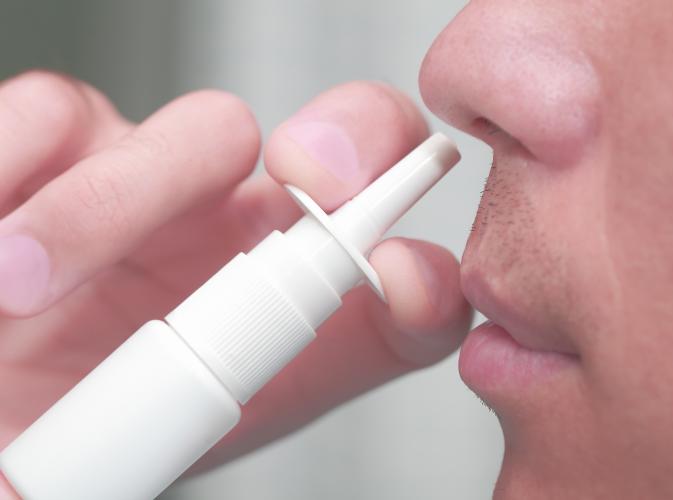
Chronic sinusitis is a broad diagnosis further classified based on the presence of nasal polyps. Depending on the subtype, the underlying cause, and the extent of disease, your doctor may use different therapeutic approaches to treat your chronic rhinosinusitis.
Generally,
Saline rinsing (or douching) provides symptomatic relief by washing the nasal cavities, removing secretions, and rinsing allergens and irritants. The use of nasal rinsing with saline prior to administration of other nasal medications enables the medication to effectively reach the inner lining of the nasal mucosa.

Corticosteroid nasal sprays (or topical steroid) are generally prescribed to reduce the inflammation by altering the actions of cells from your immune system. Common generic names of corticosteroids include fluticasone, mometasone, prednisone and triamcinolone. If polyps are present, corticosteroid treatment may shrink them.
If a nasal corticosteroid is not effective, corticosteroid may be prescribed orally. Because oral corticosteroids can cause important side effects, they are generally taken only for a limited period of time. Side effects may include osteoporosis, hypertension, diabetes, weight gain, and eye disorders, among others.

If allergies cause to worsen your sinusitis symptoms, antihistamines may be prescribed to reduce the inflammation. In addition, it is recommended to avoid allergens to further reduce your sinusitis symptoms.
Oral antibiotics may be prescribed in case of chronic and recurring infection of your sinuses. Certain antibiotics, such as macrolides and tetracyclines, have anti-inflammatory properties and further help reducing the inflammation.
Biologicals drugs are novel molecules which are currently being tested in patients with chronic rhinosinusitis with nasal polyps. Although not available yet, these drugs may be efficient to shrink and eliminate nasal polyps without surgery.
Lack of control in chronic rhinosinusitis is often,but not always, linked to the improper adherence to the prescribed treatment. It is important to follow the recommendation of your doctor in order to define the best therapeutic strategy for your chronic rhinosinusitis.
In moderate to severe symptoms of chronic sinusitis, either with or without nasal polyps, long-term treatment with antibiotics can be prescribed for around 12 weeks.
Only steroid tablets can give side effects because they enter the blood circulation. Nasal sprays containing corticosteroids are not causing side effects since they are applied locally, without uptake in the blood circulation. Long-lasting intake of tablets with steroids can influence thyroid disease, dysregulate sugar levels -particularly in patients with diabetes-, cause osteoporosis and trigger depressive of agitated feelings.
In some patients who have relatives that are affected by high eye pressure, nasal sprays with steroids might trigger development of these eye problems if overused. Generally eye symptoms are rarely caused by nasal sprays containing steroids. If there are doubts, patients should see an ophtalmologist for review.
The nasal decongestant spray only works for a short period by decongesting the mucosa agressively. It should not be used longer than 5 consecutive days. If used over a longer period, it can have adverse effects like additional swelling and irritation of the mucosa and even cause dependance on this medicine.
Surgery will be suggested by your doctor when maximal medical treatment has failed. By maximal medical treatment, we refer to different and adequate types of therapy, with medications that have proved their efficacy during large clinical trials.
The standard surgical procedure for chronic rhinosinusitis is Functional Endoscopic Sinus Surgery. The aim for every patient who gets operated for chronic rhinosinusitis is to remove the disease in key areas, to restore adequate aeration and drainage of the sinuses, to remove nasal polyps if present, and overall to protect normal nasal functioning.